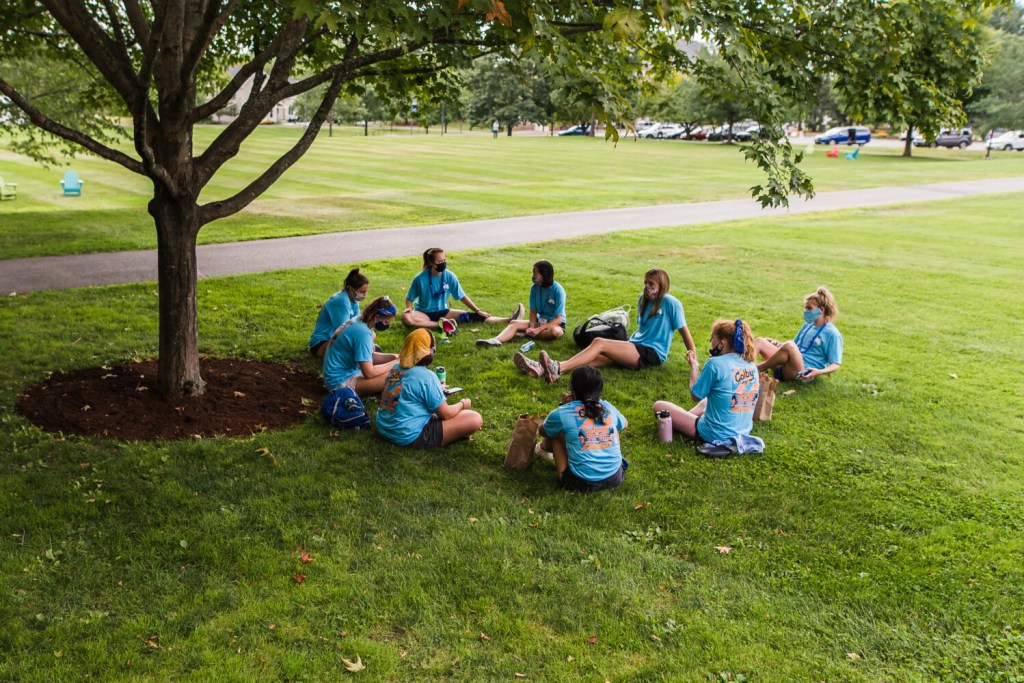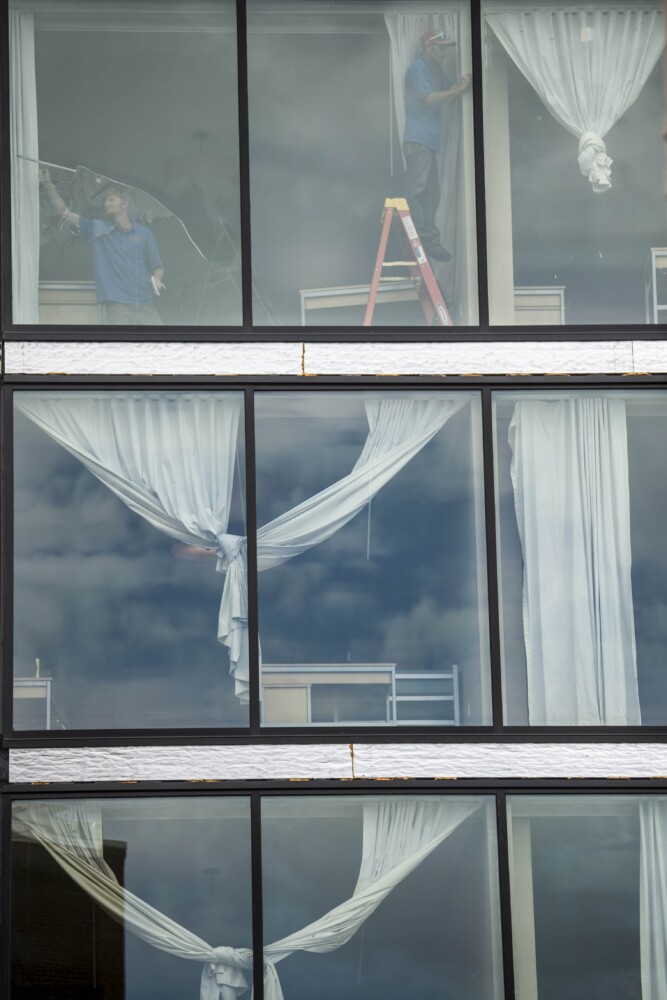The Colby College campus is closed to the public, according to college officials. It is a vital precautionary element in its plan to have its students in classrooms in person. The key to the success of Colby’s experiment bringing back its students in the midst of the COVID-19 pandemic lies in its testing protocols, which start on the day students arrive in Waterville.
That day was Friday.
In downtown Waterville parents appeared with their college age children, some getting something to eat, others shopping. At the campus along Mayflower Hill Drive, a road that the college owns and maintains, families in cars with Colby decals on them were dropping off students. Social distancing was a challenge.
But unlike previous moving in days on college campuses, where students might arrive in droves with a passel of family members, a favorite chair and a refrigerator, Colby is attempting to space out its students’ arrivals, designating specific days and times along with room assignments from Friday through Monday, according to its website.
Only two people may accompany each student to the campus. Only students are allowed in the buildings. Only essential items, such as a laptop, clothes, clean bedsheets, should be brought so that there is less chance of congestion in stairwells and hallways.
Classes begin on Wednesday.
Arrivals are tied to the testing protocols. The check in area on campus is also the testing area. Keys are handed out along with kits containing the by-now-familiar-items that defend against the spread of the infection: face coverings, thermometers, hand sanitizers and, perhaps most important, information on COVID-19.
Once tested, students are expected to quarantine in their rooms until the results are returned to them within 24 hours. Any necessary items, such as toiletries and food, should be bought beforehand, the website says.
Students, faculty and staff will be tested twice more during the first week, three times the second week and two times every ensuing week.
“If we’re testing two times a week, the idea is we can catch people who might be infected before they are contagious,” Colby President David Greene said in an Aug. 13 interview. “That’s really the critical component for us: constant testing.”

Cleaning crews prepare the interior of the Lockwood Hotel on Main Street in Waterville on Friday, the first of several days students will be arriving. Michael G. Seamans/Morning Sentinel
Quarantined students living on campus can go to the dining halls to eat. Meals will be provided for students living in the Lockwood Hotel in downtown Waterville.
Students with cars living at the Main Street Commons may park them in The Concourse. A lot behind the Lockwood Hotel is open for short-term parking for students living at the hotel. Shuttles to the campus are available to students without cars, the website says.
The college’s ambitious plans to keep students and staff safe from COVID-19 hinges on the constant tracking of test results and the cooperation of all involved.
There is doubt. As Martyna Czarnik, the co-editor-in-chief of the Colby Echo student newspaper, told the Morning Sentinel recently, “I would have felt much safer studying remotely; however, Colby does not allow for students to take all in-person classes remotely. At this point in time, it feels as if Colby is forcing students to sacrifice their safety for their education.”
The college has responded to that concern by saying all students “were provided the opportunity to study on campus, to take courses remotely, or to take a leave with automatic re-enrollment at the semester of their choosing.” The college noted that “128 students have chosen to take classes remotely and 2,060 are expected to be on campus. Approximately 30 percent of our classes will be taught in a remote format.”
“Our primary model of education is in-person learning and instruction, and the comprehensive safety plan we have developed is allowing us to continue to provide the very best education to our students,” the college said in a statement.
As the plan rolls out this weekend, the ultimate aim is to protect not only the Colby community but also the wider city and region, the website says.
As Greene said just days ago, “It’s just trying to use the best judgment we can and not cut corners. Ours, really, is the comprehensive protocol approach to having everyone on campus, and that’s unusual, for sure.”
Send questions/comments to the editors.






